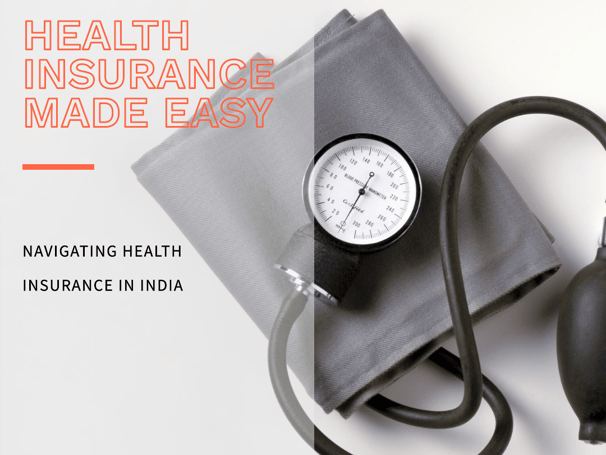Navigating Health Insurance in India
An awareness drive on Mediclaim Insurance
Suchismita Jena, Certified Financial Planner, AMFI Registered Mutual Fund Distributor.
4/19/20242 min read


A Guide for Investor Awareness
In India's expansive and diverse landscape, quality healthcare accessibility is a paramount concern. However, with the surge in medical expenses, safeguarding against unforeseen health issues is imperative. Health insurance emerges as a crucial tool, providing a safety net for individuals and families alike. Let's explore the essentials of health insurance in India and how investors can make informed choices.
Understanding Health Insurance:
Health insurance is a contract between an individual and an insurer, where the insurer agrees to cover medical expenses in exchange for premium payments. These expenses can range from hospitalization to surgeries, treatments, and medications, depending on the policy's terms.
The Importance of Health Insurance:
With escalating healthcare costs, health insurance becomes not just advisable but necessary in India. It ensures timely access to medical care without the worry of financial burden, offering peace of mind during health emergencies.
Types of Policies:
· Health insurance policies cater to various needs and budgets.
o Individual Health Insurance covers medical expenses for an individual.
o Family Floater Health Insurance provides coverage for the entire family under a single policy.
o Critical Illness Insurance covers specific life-threatening illnesses.
o Senior Citizen Health Insurance provides tailored for a certain age limit.
o Group Health Insurance offers by employers to cover their employees.
Factors to Consider:
· Investors should weigh these factors when selecting a policy:
o Coverage: Assess the extent of coverage, including hospitalization, pre- and post-hospitalization expenses, etc.
o Network Hospitals: Check for cashless treatment facilities at network hospitals.
o Premiums: Compare premiums across insurers for the best value.
o Claim Settlement Ratio: Choose insurers with a high claim settlement ratio for reliability.
o Exclusions: Understand policy exclusions to avoid surprises during claims.
Investor Awareness:
Prioritize understanding policy nuances through research, financial advisor guidance, and reviewing insurance documents. Stay updated with industry changes to make informed decisions.
The addition of portability as a feature in health insurance introduces the ability for policyholders to seamlessly transfer their coverage when changing insurers or plans. This enhancement offers individuals greater flexibility and choice, empowering them to select insurance options that align better with their evolving needs.
Portability fosters competition among insurers, driving innovation and affordability in the healthcare market. However, understanding eligibility criteria and coverage networks remains crucial for informed decision-making. Ultimately, the integration of portability enriches the landscape of health insurance, promoting continuity of care and financial security for consumers.
People who should avoid portability:
⦿ People with critical illness or multiple diseases.
⦿ Senior citizens, especially with medical history.
Reasons behind it:
⦿ Chances of acceptance are anyway low.
⦿ You lose track record.
⦿ Higher chances of disputes in case of early claims.
Conclusion:
In India, health insurance is vital for financial security against medical uncertainties. Seek expert advice, conduct research, and stay informed to navigate effectively. A professional advisor is essential, helping anticipate needs, explore options, and ensure comprehensive coverage and financial stability.
